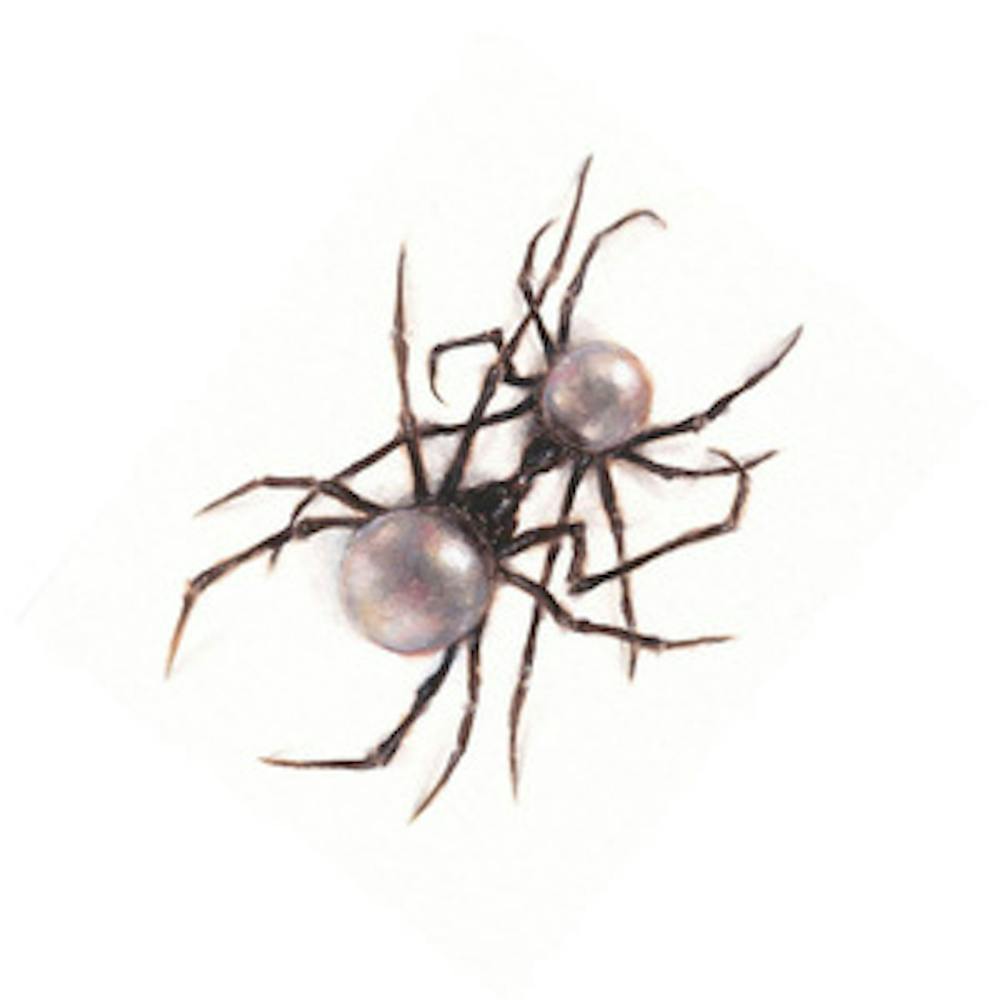Should art be separated from the artist?
Throughout the rollout of her fourth studio album, “Scarlet,” Doja Cat prodded at this question, making inflammatory comments on her past albums and her relationship with fans — criticizing the nature of fame while intentionally courting it.
Yet throughout the retirement announcements, the disavowing of her previous work as cash grabs, the criticism of her fandom name and the changes of album title and genre, one question loomed: would the album itself live up to the levels of hype she was building?
The first single of the album, “Attention,” set expectations high. The ethereal, ominous hook and ‘90s rap verses that analyze Doja Cat’s public perception effectively address the discomfort that comes with being in the spotlight.
While criticizing her followers for focusing on antics — “but you don't really care about the music” — Doja also demonstrates self-awareness (“It needs, it seeks affection”). Artists rely on the public's attention for income, and it’s rare that the attention solely comes from the art itself.
This concept is not necessarily groundbreaking, but the use of specific personal stories in the verses lends an air of authenticity to the track. It’s certainly a new sound for Doja, but it’s also a song only she could have made.
In “Scarlet,” Doja Cat made staying true to herself a clear goal.
“This new album is more introspective, but I’m not leaning so hard into that to where it becomes boring. So I want to give stories and bops. It’s a nice mixture of both,” Doja said in an interview with Harper’s Bazaar. “I think this project is a really fun canvas for me to play with my rap skills and talk about what’s going on in my life. But I’m not abandoning who I was and what I know about pop and singing and that aspect of music.”
However, holding space for all the parts of yourself while delivering a concise, cohesive project is easier said than done.
The second single off “Scarlet” and album-opener “Paint The Town Red” is undoubtedly the biggest hit of this era, becoming Doja’s second number one on the Billboard Hot 100.
Unfortunately, it feels like a retread of sonic ground already covered in her previous albums, but without the same exciting delivery or memorable lines. Lyrics like “I got drive, I don’t need a car” stick out like a sore thumb.
The song is followed by “Demons,” where Doja uses a flow reminiscent of Justin Bieber’s infamous “I Feel Funny” over a disorienting beat. The combination sounds wild on paper, but Doja pulls it off with an irreverent flair.
“Demons,” along with the following track, “Wet Vagina,” is where the album begins to take shape, with Doja experimenting with new styles and tackling the topic of fame, all while having fun and bringing the personality that led fans to her in the first place.
As the album continues through its 17 tracks, the luster begins to wear off. The album features no other artists, so Doja gives the sole point of view on what fame is. Her anger, instead of being a righteous call-out of fans, can at times read as petty.
The track “Love Life” is particularly egregious in this regard. As Doja Cat brags about the new things in her life, it sounds like she’s attempting to convince herself that she likes them. “I love it when my life’s like this,” she chants in the chorus, as if the more times she says it, the more true it becomes. The song could be a parody of an insecure person that Doja would have made earlier in her career, but it's played completely straight here.
Still, even among the low points, there are undeniable highlights.
In the otherworldly “Agora Hills,” Doja makes a memorable ode to her lover, complete with a relaxed Coco-and-Clair-Clair-esque flow and interjections of her speaking with a “Valley girl” accent. This delivery choice and the song title reference Doja’s celebrity-filled hometown of Los Angeles. She presents an enticing and surreal perspective on romance in the public eye.
In “Skull and Bones,” Doja counters allegations of Satanism over a silky smooth beat, (“You need to mind your business, Helga Pataki”). Although covering similar subject matter to “Paint the Town Red,” this track feels much more comfortable and lyrically inventive.
While far from a bad album, “Scarlet” finds itself in an uncomfortable position in Doja’s discography. Its best moments are when Doja intelligently toys with her audience in a way that only she can, while its worst moments make the project feel bloated and inconsistent. The album shows off her willingness to experiment, and hopefully, her future endeavors will see those experiments refined.
This article was edited by Sara Winick, Zoe Bell, Patricia McGee and Abigail Pritchard. Copy editing done by Isabelle Kravis and Olivia Citarella.





